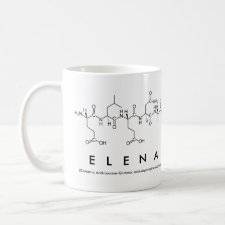
Authors: Bakas I, Ben Oujji N, Istamboulié G, Piletsky S, Piletska E, Ait-Addi E, Ait-Ichou I, Noguer T, Rouillon R
Article Title: Molecularly imprinted polymer cartridges coupled to high performance liquid chromatography (HPLC-UV) for simple and rapid analysis of fenthion in olive oil.
Publication date: 2014
Journal: Talanta
Volume: 125
Page numbers: 313-318.
DOI: 10.1016/j.talanta.2014.03.020
Alternative URL: http://www.sciencedirect.com/science/article/pii/S003991401400201X
Abstract: A combination of molecular modelling and a screening of the library of non-imprinted polymers (NIPs) was used to identify acrylamide as a functional monomer with high affinity towards fenthion, organophosphate insecticide, which is frequently used in the treatment of olives. A good correlation was found between the screening tests and modelling of monomerGÇôtemplate interactions performed using a computational approach. Acrylamide-based molecularly imprinted polymer (MIP) and non-imprinted polymer (NIP) were thermally synthesised in dimethyl formamide (porogen) using ethylene glycol dimethacrylate as a cross-linker and 1,1-azo-bis (isobutyronitrile) as an initiator. The chemical and physical properties of the prepared polymers were characterised. The binding of fenthion by the polymers was studied using solvents with different polarities. The developed MIP showed a high selectivity towards fenthion, compared to other organophosphates (dimethoate, methidathion malalthion), and allowed extraction of fenthion from olive oil samples with a recovery rate of about 96%. The extraction of fenthion using MIPs was much more effective than traditional C18 reverse-phase solid phase extraction and allowed to achieve a low detection limit (LOD) (5 μg L-1)
Template and target information: fenthion
Author keywords: molecular modelling, MIP, solid phase extraction (SPE), selective extraction, olive oil, Fenthion



Join the Society for Molecular Imprinting

New items RSS feed
Sign-up for e-mail updates:
Choose between receiving an occasional newsletter or more frequent e-mail alerts.
Click here to go to the sign-up page.
Is your name elemental or peptidic? Enter your name and find out by clicking either of the buttons below!
Other products you may like:
 MIPdatabase
MIPdatabase









